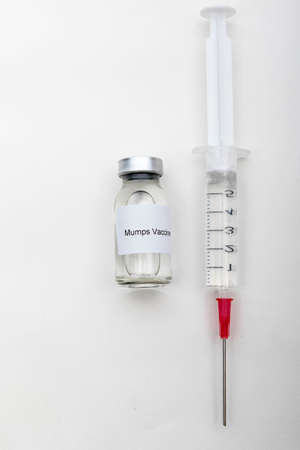1. Introduction to School-Age Vaccines in the UK
Vaccinations play a pivotal role in safeguarding the health of school-age children across the UK. The NHS offers a robust programme of routine immunisations designed to protect youngsters from potentially serious diseases as they grow and interact more widely with their peers. Among the most notable vaccines given during school years are those for flu, HPV (human papillomavirus), and meningitis. Each vaccine targets specific illnesses that can have far-reaching consequences not only for individual children but also for the broader community. By ensuring high uptake of these vaccines, public health authorities aim to reduce outbreaks, prevent long-term complications, and foster healthier learning environments. In this article, we will shine a spotlight on these essential vaccines, exploring how they fit into the overall strategy for keeping school-age children healthy and why their continued acceptance is crucial for public health in the UK.
2. Understanding the Flu Vaccine: Protecting Against Influenza
Every year, the UK sees a seasonal spike in flu cases, making annual influenza vaccination a key part of public health for school-age children. The NHS offers a free flu vaccine each autumn to children from Reception up to Year 11 in England, typically administered as a quick and painless nasal spray. This annual jab is especially important given how flu viruses change year on year, and it helps not just to protect vaccinated children but also to slow the spread of influenza throughout schools and communities.
Eligibility Criteria for School-Age Children
The eligibility for the NHS flu vaccine can sometimes be confusing, so here’s a handy table outlining who qualifies:
| Year Group | Eligible? |
|---|---|
| Reception to Year 11 (Ages 4-16) | Yes |
| Younger children (aged 2-3) | Yes (through GP surgery) |
| Sixth Form/College Students | No (unless high-risk group) |
Why Is It Especially Important in the UK?
The UK’s cold and damp winters create an ideal environment for flu viruses to spread rapidly in schools, which are often busy, enclosed spaces. Children are more likely than adults to catch and transmit flu—meaning outbreaks can have knock-on effects on families and even disrupt local healthcare services. With school attendance highly valued in British culture, preventing illness with the annual flu vaccine ensures children miss fewer days and helps maintain overall community health.
Key Takeaway
If you’re a parent or carer in the UK, keeping up with your child’s annual flu vaccine is one of the simplest ways to protect them—and those around them—from the unpredictable impact of influenza each winter.
![]()
3. HPV Vaccine: Safeguarding Future Health
The Human Papillomavirus (HPV) vaccine is a cornerstone of the UK’s school-age immunisation programme, designed to protect young people from certain types of cancer later in life. Typically offered to pupils in Year 8 (aged 12 to 13), the HPV vaccine is now given to both girls and boys, reflecting growing awareness of its benefits for all genders. The primary aim of this vaccination is to prevent HPV-related cancers, most notably cervical cancer, but also cancers of the mouth, throat, and anus.
In the UK, the NHS provides the HPV vaccine free of charge through schools, making it highly accessible. The vaccine is usually administered as a single dose following updated clinical guidance, with high uptake rates thanks to strong partnerships between schools, public health teams, and local authorities. Parents receive detailed information beforehand, allowing them to make informed decisions about their child’s health. This proactive approach has already contributed to a significant reduction in HPV infections and pre-cancerous changes among vaccinated groups.
For parents considering the benefits, it’s important to know that the HPV vaccine is backed by robust evidence and decades of global use. Side effects are generally mild—most commonly a sore arm or slight fever—and serious reactions are extremely rare. Schools play an essential role in ensuring students receive this vital protection before they become exposed to the virus later in life. Ultimately, opting into the HPV vaccination programme gives young people across the UK greater confidence in safeguarding their future health and wellbeing.
4. Meningitis Vaccines: Critical Protection for Young People
Meningitis remains a serious health concern in the UK, particularly among children and adolescents. This potentially life-threatening infection can develop rapidly, making timely vaccination essential. The NHS offers specific meningitis vaccines for school-age children to provide robust protection against the most prevalent strains. Understanding the types of meningitis vaccines available and why they are offered at certain ages is key for parents and guardians navigating their child’s vaccination schedule.
Types of Meningitis Vaccines Available in the UK
There are two main meningitis vaccines recommended for young people in the UK: MenACWY and MenB. Each targets different groups of bacteria responsible for causing meningococcal disease.
| Vaccine | Covers | Typical Age Group | Why It’s Important |
|---|---|---|---|
| MenACWY | Meningococcal groups A, C, W, Y | Around 14 years old (school Year 9/10) | Protects against rising cases of MenW and other strains common in teens and young adults |
| MenB | Meningococcal group B | Babies and those at increased risk; catch-up for older children in some cases | Main cause of bacterial meningitis in UK children; highly recommended for infants, with some protection extended to older kids if needed |
The Rationale Behind Targeting School-Age Groups
Adolescents and teenagers are more likely to carry and transmit meningococcal bacteria, even if they do not show symptoms themselves. Crowded environments such as schools, university halls, and social gatherings make this age group especially vulnerable to outbreaks. By vaccinating pupils before they leave secondary school, the NHS aims to reduce both individual risk and wider community spread.
Benefits Beyond Individual Protection
Vaccinating school-age children not only shields them from severe illness but also helps establish herd immunity. This broader protection is vital for safeguarding babies, vulnerable adults, and those who cannot be vaccinated due to medical reasons.
Your Takeaway: Prioritise Meningitis Vaccination at the Recommended Ages
If your child is approaching secondary school or preparing for university, ensure they receive the recommended MenACWY booster. For younger children or those with specific health conditions, discuss MenB vaccination options with your GP. Taking proactive steps now provides peace of mind as your child navigates busy school years and social milestones.
5. How and When Are These Vaccines Administered in UK Schools?
For parents and students in the UK, understanding how flu, HPV, and meningitis vaccines are delivered in schools is essential. The process is straightforward, with the NHS working closely with local schools to ensure a smooth experience for all involved.
Consent Process
Before any vaccination takes place, parents or guardians will receive an information pack from their child’s school, typically sent home via letter or email. This pack includes details about the vaccine, its benefits, possible side effects, and a consent form that must be signed and returned. For older students, especially those over 16, there may be opportunities to self-consent if deemed competent by healthcare professionals.
NHS Delivery in Schools
The NHS Immunisation Team visits schools according to a planned schedule throughout the academic year. Nurses and trained healthcare staff set up a temporary clinic within the school premises—often in the assembly hall or medical room—making it convenient for pupils to receive their jabs during the school day. Aftercare is minimal, but staff are on hand to monitor students briefly post-vaccination and answer any immediate questions.
Timing Throughout the School Year
Each vaccine is administered at specific times:
- Flu vaccine: Typically offered in autumn term (September–December) for primary school children and some secondary years.
- HPV vaccine: Given to boys and girls aged 12–13, usually during Year 8 (S2 in Scotland), with two doses spread several months apart.
- Meningitis ACWY: Offered to teenagers around age 14–15 (Year 9/S3) and again as a catch-up jab for new university entrants under 25.
What Parents and Pupils Should Expect
The process is designed to minimise disruption to learning while ensuring safety. Pupils may feel mild discomfort or anxiety about injections, but staff are experienced in supporting children through these moments. If your child misses a vaccination session due to absence or illness, catch-up clinics are often arranged either at school or via your local GP surgery.
In Summary
The UK’s school-age vaccination programme is well-organised, aiming for maximum convenience and accessibility. By understanding the consent procedure, NHS involvement, and the timing of each vaccine, families can feel confident about protecting their children’s health while navigating the academic year.
6. Addressing Common Concerns and Staying Informed
Tackling Vaccine Hesitancy: Practical Advice for Parents
It’s perfectly natural to have questions or concerns about your child’s vaccinations, especially with so much information circulating online. If you’re feeling hesitant about the flu, HPV, or meningitis vaccines, start by having an open conversation with your child’s GP or school nurse. They can provide evidence-based answers and address any worries, such as potential side effects or effectiveness. Remember, most children experience only mild symptoms like a sore arm or slight fever after their jabs, and serious reactions are exceptionally rare. Sharing your concerns openly not only helps you make an informed choice but also reassures your child that vaccination is a positive step for their health.
Making Use of Reliable NHS Resources
Staying up-to-date with the latest advice is crucial. The NHS website is an excellent starting point for accurate, up-to-date information on all childhood vaccines offered in the UK. There are dedicated sections on flu, HPV, and meningitis vaccinations—each explaining who should have them, when they’re given at school, and what benefits they bring. For parents who prefer bite-sized updates, following NHS social media channels or signing up for local GP practice newsletters can also help you stay in the loop about new guidance or upcoming vaccination clinics in your area.
Ensuring Your Child Is Fully Protected
Don’t forget to check your child’s Red Book (Personal Child Health Record) to keep track of which vaccines they’ve received and whether any boosters are due. If your child missed a school vaccination day because of illness or absence, contact your GP surgery—they can arrange catch-up appointments so no protection is missed. Additionally, encourage open conversations at home about why these vaccines matter; helping children understand how vaccines protect both themselves and their classmates fosters a sense of responsibility and community care.
Top Tips for Parents and Guardians
- Use trusted sources like the NHS for vaccine information.
- Speak directly to healthcare professionals about any concerns.
- Keep vaccination records up to date in your child’s Red Book.
- Arrange catch-up appointments promptly if needed.
- Have positive discussions at home about the importance of vaccines for everyone’s wellbeing.
By staying informed and proactive, you’ll ensure that your child receives the best possible protection against flu, HPV, and meningitis—helping them thrive throughout their school years and beyond.


